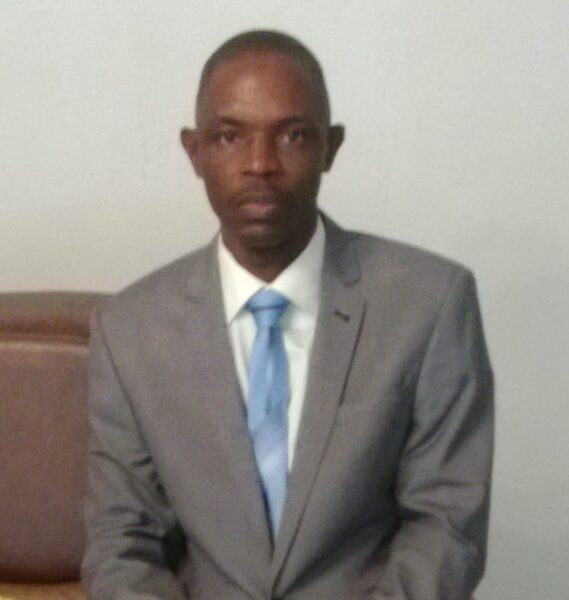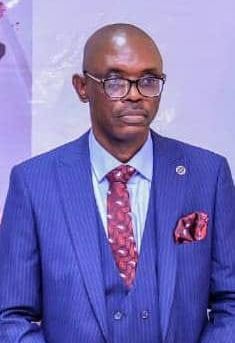By Toyin Falola
Anyone familiar with Yorùbá’s linguistic demeanour would have come across the axiomatic expression that water and palm oil do not mix. While this saying is rooted in scientific awareness, it also suggests the Yorùbá’s deep-seated value of communicative clarity. Among the Yorùbá, the gravity of what is said is usually not the problem but the profundity of how the expression is presented. In essence, the people greatly value the creative and effective use of words. The unsuccessful fraternity between water and palm oil suggests that although circumstances might force things together, they may remain distinct, each not bending to tolerate the other because they have different principles and ideological convictions.
This analogy, perhaps still relevant today, describes the relationship between Lasisi Olagunju and the erstwhile Nigerian President, Muhammadu Buhari, who led the country for eight consecutive years. Olagunju serves as the social conscience who consistently educates the masses about the intricacies and travails of leadership. His position, whether as water or oil, does not imply a personal animosity towards the former President. Instead, his constantly critical stance suggests a commitment to a purpose. Let us explore this further.

Notably, Olagunju did not make an enemy of former President Muhammadu Buhari because the latter occupied the most treasured political office in the country. Rather, he expected that as an occupant of the highest public office in the country, there should be a level of activeness, seriousness, and accountability towards the citizenry. The gravity of this position is evident in how immediately the President’s policies and decisions impact the lives of both the common and influential people in society.
Buhari emerged in Nigeria’s theatre of political events not as a profound political or management expert who could provoke or maybe propose acute and revolutionary ideas but as an individual who exploited the weakness of the country’s democracy to implement morally and ideologically deficient ideas that did not align with the people’s aspirations. This itself was the foundation of people’s angst towards him, as many Nigerians had placed their hopes in him as the Messiah who would liberate them from the shackles of corruption and bad leadership. Under Buhari’s administration, numerous issues angered Nigerians, and the fact that he allegedly aided and abetted corruption was not even the topmost of them.
In every political landscape, it is common knowledge that leaders often take advantage of defenceless people to achieve their provincial objectives. Citizens typically adjust their expectations so that they are not overly disappointed when the leaders begin to misbehave. However, the bright columnist Olagunju did not take Buhari’s failure to fulfil the role of a transformative leader with levity. He served as the voice of the people, articulating their widespread dissatisfaction with a leader they had once thought was the saviour they had longed for.

Buhari came into power riding on the back of populism, with the impression that he empathised with the pains and agony of ordinary people and was not ready to indulge the elites who had exploited the common people with grand impunity. He was tender and original in outlook and appeared ready for the tasks ahead. Many Nigerians believed that he would continue to represent their interest despite the challenges posed by powerful individuals who controlled the reins of power and that the threat and gimmicks of the political elites would not faze him. Sadly, though, the story became different when he assumed office.
In one of Olagunju’s critiques, Buhari was depicted as a wolf in sheep’s clothing who came with a modicum of genuine mind or the conviction of a repentant criminal promising calmness and orderliness. Sai Baba, the appellation for which he was popularly known, was the very popular signature of Buhari’s diehard loyalists who would argue to no end that the man was fair and impartial in his handling of public trust and finances. However, many of them eventually realised this was a false assumption born out of unchecked loyalty to the political class. By that time, though, the deed had already been done.
Olagunju points out that one of the signals that Buhari was not the Messiah the people hoped for was his failure to transform from a war general to a democratic advocate despite the huge social and financial investment in his leadership. Unfortunately, this shortcoming was not known until the man began to reveal his true character. Buhari was highly sensitive to criticism, becoming visibly incensed by critical evaluations of his approach to leadership and the ensuing results. Such behaviour is uncharacteristic of genuine leaders with valuable contributions to make. Leaders who are principally opposed to tolerance and understanding are likely to pursue actions that undermine the fragile relationships and trust in ethnically diverse countries like Nigeria.
Buhari’s aggressive undertakings were indicative of a personal vendetta fuelled by past grievances and a dedication to vengeful ambitions. During Buhari’s tenure, the suppression of press freedom and the inability of people to openly confront the government to lay bare their grievances revealed how utterly condescending the man was in his leadership engagements. But this did not deter Olagunju from writing about how the citizens’ hope for a better society was being repeatedly dashed by a man who was indifferent to their struggles. Buhari would not back down, and Olagunju would also not compromise his pen, consistently holding the administration accountable and voicing the frustrations of the people.
Olagunju has x-rayed the policies introduced to the Nigerian economic and political space, which are of no valuable addition to the people’s lives. For example, under Buhari’s administration, there was a sudden surge in cash demands as people became hindered by the government’s cashless policy of naira design and were unable to withdraw money to pay for their necessities. In an economy where people already struggle to save under extreme pressure, access to their money is crucial for maintaining a basic quality of life. Unfortunately, Buhari’s administration exacerbated the woes of the helpless masses by making it difficult for them to access the money saved in banks.
With haphazard and poorly thought-through ideas such as this, the ripple effects cannot be overemphasised. For example, in the beginning, there was the creation of sudden millionaires who took advantage of the loopholes in the policy and maximised the opportunity for their parochial intentions. During this period, some individuals became rich by setting up agencies that allowed people to access their money and withdraw cash for their basic needs, charging them ridiculously high amounts per transaction. Olagunju was very vocal in challenging this anomaly, consistently highlighting the adverse effects of such policies on ordinary Nigerians.

Tension was high at the time because the underlying motivation for the ill-conceived decision seemed to be an attempt to thwart the emergence of a particular candidate. Olagunju does not make baseless accusations; he chooses to engage these political gladiators only when he understands that they lose their credibility during electoral engagements. With the cashless policy and the harsh impacts on the people, it became obvious that Buhari was not the gentleman that many Nigerians believed him to be.
There is the assumption that without being pragmatic and deliberate, leaders would continue to play to the gallery, but such behaviour cannot be faulted in all ramifications. Buhari’s unfriendly policies at the time were considered an attempt to maintain the oligarchic hold of the country by ensuring that power remained within certain ethnic territories. Therefore, the territorialisation of political power in Nigeria laid the foundation for numerous problems that, on the surface, may not appear directly linked but are keenly rooted in it. Security challenges, which have plagued many states and communities, sometimes seemed orchestrated by the political class to stoke the embers of unity that had long defined them.

Olagunju’s outspokenness and unwavering honesty have always been the foundation for his enduring popularity among the people. More importantly, this has also garnered him international recognition and acclaim. His relentless criticism and steadfast commitment to exposing societal issues define his contentious relationship with Buhari, highlighting the tension between a government resistant to accountability and a journalist dedicated to advocating for the people.
PS: This is Part 4 of a Six-Part Series. I wish to express my gratitude to colleagues in Tanzania and Uganda for their support, which makes the environment that supports muse and reflection possible.

Your article holds promise with its insightful ideas and solid points. To unlock its full potential, consider delving deeper into the topic. Your clear writing and innovative approach are commendable, but injecting more energy could make it even more captivating. While your examples are effective, infusing them with more enthusiasm could truly elevate your piece. Overall, your article is well-crafted yet has room for enhancement. Strengthening your arguments and incorporating more compelling facts will further bolster its impact. With your evident talent, the potential for greatness is clear. I eagerly anticipate your future work and am excited to see how you continue to excel. Keep up the excellent work!
Your article holds promise with its insightful ideas and solid points. To unlock its full potential, consider delving deeper into the topic. Your clear writing and innovative approach are commendable, but injecting more energy could make it even more captivating. While your examples are effective, infusing them with more enthusiasm could truly elevate your piece. Overall, your article is well-crafted yet has room for enhancement. Strengthening your arguments and incorporating more compelling facts will further bolster its impact. With your evident talent, the potential for greatness is clear. I eagerly anticipate your future work and am excited to see how you continue to excel. Keep up the excellent work!
Your article demonstrates considerable promise, showcasing insightful ideas and a solid foundation. To elevate it to a truly outstanding level, consider the following enhancements: 1. Deepen your analysis by exploring key concepts more thoroughly, providing nuanced explanations, and addressing potential counterarguments. 2. Strengthen your arguments with additional evidence, including peer-reviewed sources, relevant statistics, and illustrative case studies. 3. Refine your writing style to engage advanced readers. Vary sentence structures, employ more sophisticated vocabulary, and ensure each paragraph flows seamlessly into the next. 4. Enhance the overall narrative arc. Craft a more compelling introduction that clearly outlines your thesis and a conclusion that reinforces your key points while highlighting broader implications. 5. Incorporate a more critical examination of alternative viewpoints to demonstrate a comprehensive understanding of the topic and pre-emptively address potential critiques. 6. Elaborate on the practical implications and real-world applications of your arguments. This will increase the relevance and impact of your work. 7. Draw connections to related fields or concepts, broadening the scope and appeal of your article while showcasing its interdisciplinary significance. 8. Consider incorporating more vivid examples or analogies to illustrate complex ideas, making your work more accessible without sacrificing depth. 9. If appropriate, include visual elements such as graphs, charts, or infographics to support your textual arguments and appeal to visual learners. 10. Ensure your conclusion not only summarizes your main points but also opens up avenues for further research or discussion, encouraging ongoing engagement with your ideas. Your innovative approach and clear writing provide an excellent foundation. By implementing these suggestions, you can transform your already solid work into an exceptional piece that resonates deeply with a professional audience and makes a significant contribution to your field. The potential for greatness in your work is evident. Your commitment to excellence shines through, and I’m confident that your continued efforts and refinements will yield truly impressive results. I eagerly anticipate seeing how you build upon these strengths in your future endeavors, further establishing yourself as a thought leader in your area of expertise.
I cannot thank you enough for the blog articleReally thank you! Fantastic